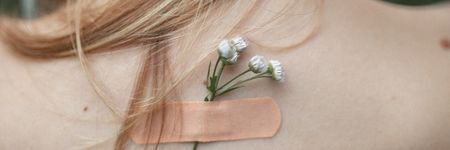| Contents: |
Narcissistic injury equates to bruised self-esteem
The concept, more than the notion of narcissistic injury, appears in Freud's 1914 essay, Introducing Narcissism. Here, he focuses on narcissistic injury to designate the attacks on our narcissism. The result is therefore a loss of self-esteem with multiple consequences: 👇
- inferiority complex
- self-contempt
- feeling of uselessness
- incessant comparison to others
- feeling of rejection from others
- inability to love oneself and fear of loving
- denigration
- loss of self-confidence
- tendency to blame oneself
- recurring feelings of shame
- poor self-image
- damaged mental health
We can therefore oppose two ideas: that of a healthy narcissism which consists of loving and accepting oneself as a whole, as one is, with one's strengths and weaknesses. In opposition, we find the idea of wounded narcissism, which pushes us to denigrate ourselves constantly and to hate ourselves.
What are the 3 narcissistic wounds?Freud puts forward the hypothesis that great scientific discoveries have inflicted narcissistic wounds on the whole of humanity. Scientific discoveries made Man fall from his pedestal by making him understand that he was not the center of the Universe, that reality was not apprehended through his vision.
|
Where does narcissistic injury come from?
Many therapists say that these narcissistic weaknesses go back to childhood or to repeated suffering in adulthood. A bad experience, or a dramatic or traumatic event, is often the cause. These events will weaken a healthy narcissism, making cuts that heal very badly, especially since many people are unaware that they are suffering from narcissistic wounds. In order to identify narcissistic flaws, we can refer to the 5 emotional wounds or "wounds of the soul". Abandonment, rejection, humiliation, injustice, and betrayal. The closer the person who inflicts this wound is to us, the more important it will be.
On a personal note, at the age of 11, I was bullied at school which created a wound of humiliation and a deep cut in my self-esteem. The same is true for children who are emotionally deprived, whose parents are too demanding, even toxic, or worse, children who suffer moral or physical violence from their parents, teachers, or others. Another example is the departure or death of a loved one, especially a parent, which can also cause a wound of abandonment.
How can one heal from a narcissistic wound?
This phenomenon isn't eternal. Depending on its intensity, it can take time to heal, but it is important to admit that something is wrong with us. Sometimes the wound is unconscious, or we don't realize that it affects our lives in one way or another. The exercise can be painful, but we have to be willing to reconnect with this flaw in order to understand and acknowledge it 🙏. In making this journey, it is quite possible for resentment and anger to arise. Remember that negative feelings are brakes. That resentment, that anger, will not help you get better, instead, you'll need to learn to forgive those who hurt you.
The reason I say learning is that forgiving takes time. Once you have done this, turn to yourself. Be tolerant and kind to yourself as often as possible, and as soon as a little voice whispers that you are worthless, shut it up. Use a mantra, positive thoughts or self-talk to help you (re)fall in love with yourself.
Finally, I remain convinced that working with a psychologist or therapist is essential to help identify the source of this wound and to allow us to heal. At a time when the mere memory of elementary school made me feel ashamed and anxious, and I couldn't talk about that period without bursting into tears, it was thanks to the support of a psychologist that I was able to really name things and begin my healing.
The effects of narcissist injury
It is impossible to talk about the narcissistic wound without talking about people with narcissistic traits. For them, such a wound is a gift. They use the wounds of others to manipulate them and serve their own needs. Someone who suffers from a narcissistic wound, and lacks self-esteem, may tend to want to attract the attention of others and thus become prey for a narcissistic pervert. However, it also happens that a narcissistic flaw develops in a person, a narcissistic personality disorder.
A lack of self-esteem can lead to a withdrawal and in more serious cases, to indifference, a lack of empathy, and an inability to love. The wounded narcissist will then become toxic to those around him or her, who will be criticized, attacked, and hurt, especially if envy and jealousy are involved. Seeing others succeed and be happy can be devastating for a wounded narcissist and lead him to hate others.
How do you know when a narcissist is hurt?
When a narcissist is hurt, it is because you have touched one of his weak points, you have exposed him, and he knows it! And that, he doesn't like at all, but not at all!!! Beware of the backlash! Hurt? Yes, but not sentimentally, because he doesn't feel any compassion; an emptiness maybe, but it won't last... Quick, another prey!
Yes, it is important for him to devalue others, it is even vital, that is how he proves himself superior to everyone; otherwise, he feels very uncomfortable, and he cannot bear the fact of being like everyone else, IMPOSSIBLE! If these toxic personalities lose everything, they’ll really suffer, because the idea of their superiority will disappear in the absence of "prey”.
Editor's opinion: Find a therapist to recoverIt is possible to free oneself from a narcissistic wound, but the first step is to become aware of it, and this is not always easy. It is necessary to accept that something is wrong and that this narcissistic wound affects your existence in one way or another. Then work on yourself will follow, so I can only advise you to contact a professional who will help you to go back to the origins of this wound and will accompany you in each of the steps of healing. 🤗 Understand yourself, accept yourself, be happy... It's here and now! #BornToBeMe |
Be sure to check out these articles too;



























Did you like this article?
Want to know more 🤔 ?
Write directly to the authorKatieM. !
Ask Katie a question
Want to share your thoughts? Leave a comment